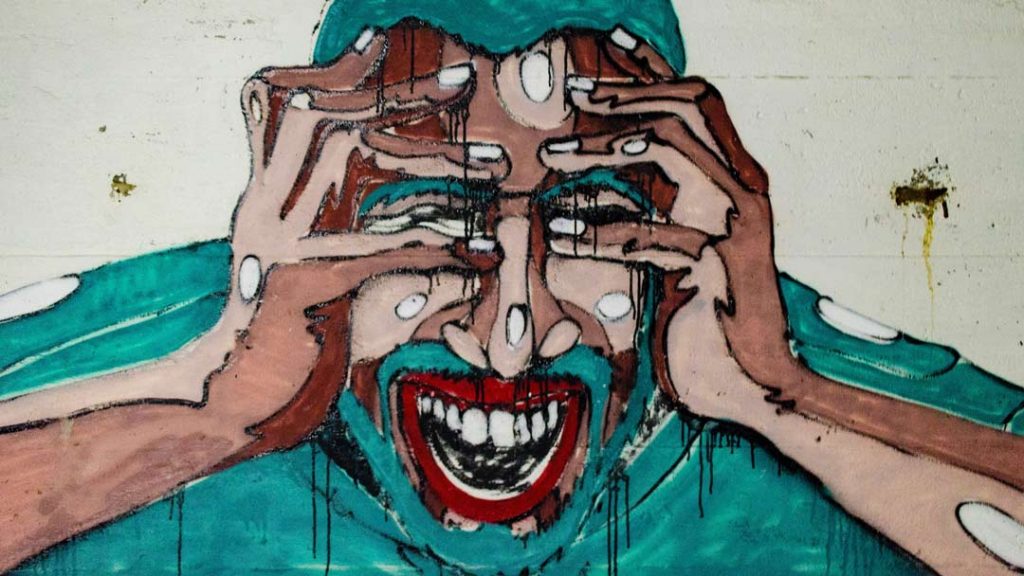Introduction to Information Fasting
“a wealth of information creates a poverty of attention”
Herbert A. Simon
Things have changed over the last 20 years. My father was a painter. He had a good trade, refurbishing office space. He went to work Monday-to-Friday. He had no office to speak of and no mobile phone. The house phone rarely rang more than a couple of times a day for business and everything else was done either face-to-face or by mail. Like most tradies, he would start work early, leaving the house at 7am and he would be finished by 4pm.
Weekend work was rare once he had built his business, and every year we had a month of beach side holidays on the coast. It was a simple life, with simple tech. We had time. Looking back now, it feels like we had a lot of time.
I feel like the amount of input was less frantic and more meaningful back then. We just didn’t have that many things screaming for our attention.
I check myself when I feel like this. Am I looking at the past through a pair of rose colored glasses? Perhaps, like most people, I remember the best and most romantic elements of a pretty idilic childhood, but the truth cannot be denied. The rhythm of life was less abrasive.
What happened? Tech happened.
Information Overload. A Modern Epidemic
Information Production
We live in a time where the abundance of information is greater than ever before. I’m not talking about a bit of an increase, I’m talking a massive exponential increase in data.
2010 – “Eric Schmidt, executive chairman of Google, tells a conference that as much data is now being created every two days, as was created from the beginning of human civilization to the year 2003.”
Source World Economic Forum
Think about that for just a minute. That’s all the information in human history every two days. He said that back in 2010 and (spoiler alert) things have ramped up a little since then.
Lets have a look at a few Youtube statistics from 2019, just to get a bit of to get a clearer idea.
Youtube has 2 billion monthly active users. They watch 1 billion hours of video content every day and upload 500 hours of video every minute. That’s 24/7 365 days a year without a sick day or holiday. That’s just Youtube. If you were to look at Websites, Google, Facebook, Instagram, Pinterest, Twitter, Netflix, they all tell a similar story. Relentless ever increasing data creation.
Information Seduction.
The other side of that coin is the consumption of this information. The smartphone changed everything, when it comes to information consumption. This ever growing smorgasbord of information is always within arms reach, always tempting us with seductive beeps and brain buzzing vibrations. It was interesting in the beginning and then the smart people of the digital world created the algorithm.
It knows what you like from your history, your friends and your associations. It knows what you want and it’s ready to give it to you (just the way you like it).
Linking the data consumption to the pleasure centers of the brain was a true stroke of evil genius. It ticked all the boxes. It’s conveniently available, it knows what you want and it gives you a little buzz of pleasure every time it feeds you a little morsel of info.
Dopamine hits that make us dependent on a never ending flow of information, making dopes of us all.
Welcome to the world of digital addiction. We have become information junkies.
Information Has Your TEA for Breakfast

Every time you consume a piece of information it comes at a cost. That cost is your Time, Energy and Attention (TEA).
Every piece of information needs to be processed (think of it like mental housekeeping). Your brain needs to filter it, understand it, create a context for it, organize it and make a memory of it. Once it has done all that it will need to link it to other memories and ideas that it relates to, so that you can recall it at the right time for an appropriate reason.
Did you like it? Did you agree with it? Is it relevant to you? Do you need to share it with somebody? Does it fit into one of your inner narratives?
The more complex the information the more TEA is need.
If any of the information involves an emotional element then the process becomes more involved again, needing even more TEA.
There is no such thing as free information. It all comes with a mental processing cost.
This housekeeping happens mostly while you are sleeping, resting or playing, so if you are not getting much down time and you are consuming large amounts of information, you start to fall behind. If this situation continues over time, you start to really feel the effects of compounding overload.
The Impact of Information Overload

Imagine an office where the files consistently keep arriving every day awaiting your time and attention to systematically file them away. Every day you are left with a pile of leftover files you didn’t manage to file. You plan to file them the following day, however another batch of files arrives, right on schedule, the very next morning. It doesn’t take long before things start to pile up.
Now try accessing specific files on demand. That’s not going to be easy. Where do you start? That’s exactly what you do every day when you attempt to access and use memory.
Welcome to the brain-fuzz created by information stacking and overload.
The impact is further compounded by the fact that, as you are attempting to find the information you need, you are being interrupted and distracted by more incoming information.
Information overload when paired with consistent incoming distraction creates an overwhelming situation. Our brains were not built to take this kind of an onslaught.
The result is an increase in anxiety and a decrease in focus and clarity. The housekeeping, sorting and cleaning work, that needs to be done by our brain, falls behind impacting negatively on our sleep cycles and over all feeling of buoyancy.
We start to take shortcuts and look for overly simple solutions to problems that may need a little more thought and energy. We can become emotionally fragile often making mountains out of molehills, because we lack perspective.
Are you often in a hurry to deal with issues quickly? Has someone or something eaten your patience? Find yourself lost in wormholes of information that have taken you to places that you were not planning to visit? Feel robbed of your time and energy? Where did the day go?
These are symptoms of a modern day epidemic. Too much, too fast, too long. Information overload.
Your brain is the instrument through which you experience your life. Literally everything you experience is processed by your brain. If your brain is malfunctioning and “running fuzzy” due to information overload then perhaps that may be something you want to address.
The Solution Is Simple.
The solution to information overload is simple. Notice I didn’t say easy!
- The first step is to start treating your time, energy and attention as a valuable and scarce commodity. In reality, your attention, your time, your energy represent YOUR LIFE.
- The second step is to design and implement a strategy of Information Fasting. Protect your time, energy and attention. Make better choices.
Your Attention Is a Valuable. Treat it that way.
Most of us have been freely absorbing random bits of information not realizing that we are trading away our time, energy and attention (our life). You have to seriously consider the nature of the deals that you make each and every day. How important is it to know about that post on Facebook? Do you really need to know about that new car, phone, breaking news or is it just more Blah Blah?
Most people who carry a mobile device in their pocket, suffer from an addiction to that device. This was never a considered decision on our part. We gladly accepted our shiny new devices into our lives and were happy with our choice. Things have changed and it’s time to reconsider the deal. It’s turned out to be a lot more expensive than we could ever have imagined.
Just because we have a never ending buffet of self serve information, doesn’t mean we should be eating 24/7.

The Strategic Information Fasting Solution.
Treat your need for information like any other consumable.
Is it worth consuming? What would you like to consume? What do you need to consume?
When would you like to feast? How much and from what sources?
How can you protect yourself from temptation? What notifications do you really need to receive?
When should you be fasting?
You are in a daily fight for your attention and you need to work out a strategy if you are going to win that fight.
Track your consumption and make a plan and build some habits to support your fight for mental space and freedom.
You don’t need to know everything or even a lot of things. You don’t need to be the first to know and share information either. Breaking-News addiction will actually consume your life if you let it. Build a system to get the information that you want from the sources that you choose and in the format that suits you best.
Check your email at predetermined times only. Unsubscribe from anything that is not absolutely necessary. When you ask yourself the question “do I really need this information?” if your answer is not a resounding YES, then it is a definite NO! It’s out.
What apps do your really need on your phone? Keep only those that serve you and be aware that many apps (especially social media apps) are addictive. Choose your poison wisely.
Long-form (deep dive) information is preferable for things you consider important. Short form bite size junk food information should be consumed with caution.
Conclusion
So much of our personal value is wrapped up in what we know. It’s important. The real challenge here is getting some measure of control over what information we consume. What is really worth knowing and what is just junk information? When you have worked out what information you want to consume , how do you avoid the toxic information finding its way into your brain. Develop a system and build a moat and keep that stuff out!
Many smart people have been building addictive systems to make sure you remain a consistent consumer. They have delved into the nature of human psychology and biology and they built this fast moving information super highway with a massive on-ramp. Can you get off? Can you use it, just to get to where you want to go and no further?
If you are seeking a sense of balance and calm, a natural buoyancy, a robust emotional constitution… in other word all those things that give you your best shot at clarity, productivity, joy and success, then you have a fight on your hands. A fight for your time, energy and attention (TEA) and the battle ground is your information consumption.
Will you implement a program of information fasting or will Darth Vader drink your TEA?
